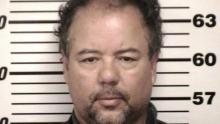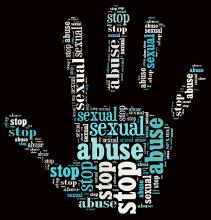Abuse
RECENTLY, several highly publicized events of domestic violence have reminded us of the epidemic proportions of relational abuse. While the focus has been on athletes, abuse has taken place from the halls of Congress to the pulpits of churches. We have also experienced, particularly from church leaders, a vocal outcry against such abuse.
This outcry, however, remains superficial, shallow, and disingenuous if we are not willing to challenge some of our dominant theological assumptions that provide the conceptual framework for the maintenance of this abuse.
Many of the early church fathers affirmed the subservient and secondary status of women and even encouraged the “control” and “forceful instruction” of women in order to maintain conformance to what they saw as God’s “relational design.” Even today, some promise to affirm women only as long as they stay in their “God-ordained place.” In other words, women can expect “favor” only when they remain defined by and conformed to a “divinely” decreed order and hierarchy.
Tragically, this hierarchy is established by the curse and the culture—not the creation and certainly not the Christ. When the curse and the culture establish our doctrine, we embrace “snakeology,” not theology. This snakeology distorts the character of God, relationships, authentic manhood, and authentic womanhood.

THE CONSIDERABLE gap between Walmart’s declared corporate values and the way it actually conducts business widens even more during the holiday season.
This season, shoppers frequenting the world’s largest retailer are encouraged to select the name of a child and to purchase and donate her wished-for gift from one of the “giving trees” located in stores. Throughout the year, the company works hard to give the impression of corporate generosity, giving, for example, to food banks.
However, many of Walmart’s own employees (or, as they are referred to in Walmart-speak, “associates”) are forced to rely on these same types of programs to get by—such as Christmas gifts for their children (purchased by strangers) and groceries from food banks.
Walmart, the United States’ largest employer, employs 1.4 million Americans; that’s five times as many as IBM. Walmart manufactures the very problems that it proudly claims to alleviate, which is worse than doing nothing at all. The deception would be laughable were it not tragic. Walmart seeks praise for funding food banks and providing toys for children in need, when they are a big part of the reason people struggle to buy food and gifts in the first place.

WHEN IT COMES to speaking out on sexual violence, the first barrier for pastors is awareness of the problem, according to a LifeWay poll, “Broken Silence.” Commissioned by Sojourners and IMA World Health, the poll—released in June—surveyed Protestant pastors across the United States on their views on sexual and domestic violence. That church leaders don’t often discuss sexual violence is not surprising; for perhaps the first time in the United States, the poll puts numbers to just how few actually do—and illuminates some reasons for the silence.
The lack of awareness of sexual violence is a multipronged problem. According to the poll, 74 percent of surveyed pastors underestimate the level of sexual violence experienced by members of their congregations. In part, this gap reflects a failure to understand the tragic ubiquity of sexual violence—1-in-3 women in the United States, and 1-in-4 men, will experience intimate partner violence in their lifetime. In a country in which 80 percent affiliate with religion, statistics strongly indicate that this issue is as pervasive within congregations as without.
Another problem, however, is around the willingness to believe it is happening. Of the pastors who talk about sexual violence, 72 percent do so because they believe it happens in their local community—but only 25 percent acknowledged that their own congregants may have experienced it.
“It couldn’t happen among Christians” is, sadly, a very common refrain among faith institutions. Reported instances of sexual abuse this year at Christian colleges, from Patrick Henry to Pensacola, indicate the deep costs of this refusal to ask whether sexual violence could happen “within the flock.”

Our shoulders touched slightly like links in a chain, kneeling around a small twin bed, our heads bowed, eyes closed: “ Our Father who art in heaven,” we mimicked, as mama kneeling at the foot of the bed, led us in prayer.
I was four, the second to the youngest child, and the other three were stair steps ahead of me. Hanging on to mama’s every word, we acted as though we didn’t take notice of the sorrow in her voice, the cries that lingered outside her bedroom door just hours ago.
Soon, she would lay in a Philadelphia hospital bed with stitches from the top of her chest down to her navel, and be told to kiss her five babies goodbye because my father had beaten her so badly that he burst both her lungs.
Decades later, I would sit across from her taking notes for Color Me Butterfly, as she told me the story:
I lay there listening to that doctor tell me that I wouldn’t make it through the night, she mused, her face drawn into the memory. I prayed, listened as God spoke to me, told me that I couldn’t let nary a soul touch me—not the doctor, the nurse, not even my own mother and chi’ren. He was gonna see to it that I walked out of that hospital, but I had to trust Him.
Now, as I think back on that day my mother stared into the abyss, as though she could still see the stitches that cinched her chest, I thank God that she was a praying woman.

Sunday night, 23-year old Kira Kazantsev proved two things when she was crowned Miss America for 2015. First, she can make a nationally television audience “happy” by using only a red plastic cup. Second, domestic violence knows no bounds.
That’s right. This year’s Miss America is one of the every four women who has experienced domestic abuse in her lifetime. During college, Kazanstev was in an abusive relationship that left her “isolated” and “hopeless,” she recently told NPR. In the same interview, Kazanstev says she wasn’t aware of the resources available for victims of domestic violence: "I very well may have Googled it," she says. "But that's not the mindset that you're in when you're in that situation. You just feel alone. You feel helpless. You don't feel like anyone could possibly understand."

Well, we’ve just concluded another week in American evangelicalism. Which is to say, we’ve witnessed another Mark Driscoll blunder.
This has for sure been a rough year for the Seattle-based mega-church preacher. He was accused of plagiarizing in multiple books, which resulted in a tepid but public apology. He embarrassed himself by crashing a conference hosted by another pastor, John MacArthur. And former staff and church members spoke out about the oppressive environment at Driscoll’s Mars Hill Church. These gaffes join a legion of others. After the flood of criticism he received, Driscoll quit social media and has retreated from the public eye.
But another shoe dropped last week when Christian author Matthew Paul Turner posted a series of discussion board comments by Driscoll under the alias “William Wallace II” in 2000. Driscoll’s opinions, though 14 years old, were nothing short of vile. In addition to being expletive-laden, they were misogynistic and homophobic (and I do not use either term lightly).
In response to the furor his comments created, Pastor Driscoll apologized yet again, saying his statements were “plain wrong” and he “remains embarrassed” by them. His apology was predictably rejected by the growing gaggle of Driscoll critics, a group that has become evermore vampirical in their thirst for Driscoll’s blood. But I accept Driscoll’s apology and other Christians should too.

Across the country, dangerous people with records of domestic violence, stalking, and aggression have no legal restriction keeping them from obtaining guns. Today, the Senate Judiciary Committee held a hearing to explore the intersection of domestic violence and gun violence. The hearing discussed major loopholes in the landmark Violence Against Women Act (VAWA), which successfully prohibited some convicted domestic abusers from gaining access to firearms. Yet even with the prohibitions in VAWA, abusers who don’t share a home with their intimate partner and abusers convicted of misdemeanor stalking charges are free to keep the weapons they have and to purchase new weapons.
“I am here today to speak for my sister Zina. I speak for Zina and her entire family because Zina is not here to speak for herself.”
Elvin Daniel, and NRA member and gun owner, lost his sister to domestic violence with a firearm and testified today in support of Sen. Amy Klobuchar’s (D-Minn.) S. 1290: Protecting Domestic Violence and Stalking Victims Act of 2013.
The tragic loss of Zina’s life is not an isolated incident. A study about the relationship between domestic violence and gun violence released by the Center for American Progress highlights how deadly this major loophole can be for thousands of women. The statistics are stunning:
- While 2.5 percent of men who are murdered are killed by a female intimate partner, 34 percent of women who are murdered are killed by a male intimate partner.
- Of all the women killed by male intimate partners from 2001-2012, 55 percent are killed with a firearm.
- More women (6,410) in the United States have been killed by a significant other with a firearm from 2001-2012 than U.S. troops have died in the wars in Iraq and Afghanistan.

WEAK LAWS AND empty regulations in Canada allow Canadian mining companies to flourish in every corner of the world: Papua New Guinea, Chile, Argentina, Peru, Mexico, the Dominican Republic, all over Africa—anywhere local conditions are favorable for producing “low cost” metals; that is, any country where local government control mechanisms are weak or nonexistent.
Today, Canadian companies account for 75 percent of mining worldwide, and their practices are rife with abuse. The companies promise sustainability, responsibility, and a “win-win” situation for all, but there is a fundamental contradiction between their claims and the reality of massive open-pit, cyanide heap-leach mining, which devastates surrounding communities and the environment.
Check out these resources to help you and your faith community address the sin of domestic violence.
IN THE PAST, programs like Menergy were often described as “batterer intervention.” Today we prefer to situate battering behavior within the broader definition of abuse, and work with our participants to change abusive behaviors, big and small.
In 30 years of work with men and women who act abusively toward an intimate partner, Menergy has had thousands of people of faith go through the program. Sometimes their faith community helped them get to our door; other times they came in spite of messages they received at church.
A faith community that seeks to encourage change for abusive members can have a dramatic impact. Here are a few suggestions for how to start:
1. Embrace the secular programs in your community. “Groupthink” often supports abusive beliefs. Don’t try to keep it in-house. In Menergy’s counseling groups, we see that diversity in life experience, culture and ethnicity, economic class, and religious belief aids group members in challenging each other’s ideas.
2. Learn more about domestic abuse. Contact the National Coalition Against Domestic Violence (1-800-799-SAFE) to get a list of local victim-advocacy programs. Send several members of your church to a training for people interested in learning more. Effective support that allows a survivor to grow stronger and safer can often be the fastest path toward holding the abusive partner accountable.

JULIE OWENS had no way of knowing that, within days of saying her marriage vows, she would become a victim of domestic violence. She grew up in a Christian home. Her father was a pastor. Her brother was a pastor. Her uncles were pastors. Her parents had a beautiful and enduring marriage. She was well educated. She was well traveled. And she was deeply in love.
During her honeymoon, Julie quickly realized that her husband now believed he owned her, a belief that would soon be followed by verbal abuse and, toward the end of their marriage, physical abuse.
The abuse began with an irrational jealousy. Then the name-calling began, along with accusations of infidelity. He isolated her from her friends and family. He showed up at the school where she worked as a special education teacher to “check on her.” Later, he started taking the car keys away from her. He even cut the spark-plug wires in their car so that he would always know her whereabouts. He threw dishes at her, disconnected the phone in their rural home, and threatened to harm her, their pets, friends, and even their unborn baby.
Three months into the marriage, Julie knew that his behavior was not normal and the couple separated.
Over the course of the next three months, she went to marriage counseling while her husband went to substance-abuse counseling. In search of help, she spoke with counselors, pastors, and others—yet not one of them ever uttered the words “domestic violence.” Instead, she was told that her husband was dealing negatively with “stress” and that he was “acting out” because he was raised in an abusive family.

JOHN HOWARD YODER, who died in 1997, was a theological educator, ethicist, historian, and biblical scholar. He is best known for his 1972 masterpiece The Politics of Jesus, his radical Christian pacifism, his influence on theological giants such as Stanley Hauerwas, and his advocacy of Anabaptist perspectives within the Mennonite community and beyond. Many testify that Yoder’s exposition of the gospel allowed them to grasp radically good news in the life and teaching of Jesus Christ.
There is a dark cloud over Yoder’s legacy, however, that refuses to dissipate. Survivors of Yoder’s sexual abuse and other advocates have renewed their calls for the Mennonite Church, including Anabaptist Mennonite Biblical Seminary (AMBS), to revisit unfinished business with his legacy.
On Aug. 19, the executive director of Mennonite Church USA, Ervin Stutzman, announced the formation of “a discernment group to guide a process that we hope will contribute to healing for victims of John Howard Yoder’s abuse as well as others deeply hurt by his harmful behavior. We hope this work will lead to church-wide resolve to enter into lament, repentance, and restoration for victims of sexual abuse by other perpetrators as well.”
WATCHING THE PBS Frontline documentary “Top Secret America” in April reminded me of why I read the gospels. They help me get my head screwed on right—upside-down, that is.
In that show, Pulitzer-Prize-winning reporter Dana Priest investigates the secret history of anti-terrorism in America since 9/11. “Secret” is the key word, since the public has little idea of the injustice, torture, black sites, civilian-killing drone strikes, data-mining, over-surveillance, and general terrorizing that have been done in our name and with our tax money for the past 12 years. The Boston Marathon bombings will only up the ante.
“Empire,” I think as I watch. Our American empire has secret tentacles in every part of our inhabited world. Cofer Black, then head of the CIA’s Counterterrorism Center, announced after we were attacked on 9/11, “The gloves come off!” In other words, we will do whatever it takes to obliterate al Qaeda. “We went in [to Afghanistan] to kick ass. And we did!”
Restraining gloves have apparently stayed off, since little has changed in the Obama administration. No current national security big shot would speak to Frontline. It’s “top secret,” of course, since in public we are supposed to be a democracy and not an empire.
I THINK OF texts from the gospel of Matthew—radical texts penned under the thumb of the Roman Empire. A couple of years ago, I was asked to write “insight essays” for a teacher’s guide in the “Gather ’Round” series of Sunday school lessons for children and youth published by the Brethren Press and MennoMedia. The first seven lessons leading up to Easter were centered on texts from Matthew 18-28. I struggled to find a common thread running through these stories and sayings leading up to the final events in Jesus’ life.

Every family involved, every neighbor, even those of us who look on in horror, will be forever stained by this horrific, sustained act. If any human act warrants eternal punishment, this clearly does. As much as I consider the death penalty barbaric, in this case death seems far too merciful. The perpetrator will never breathe a single breath free of shame and disgrace. The sin, by any standard, is beyond the pale. The case makes me wonder what judgement, punishment, and mercy might even mean. And like everyone else, my first impulse is to put as much distance as I can between this ‘sin’ and my own.
But we lie to ourselves if we imagine that our sin is no less ugly in the eyes of God. Is my, or your sin, really so different?
REV. SUSAN QUINN BRYAN walked into a meeting of the Friends of the Anna Louise Inn fully prepared for a room brimming with people. Instead, Bryan and the five other Presbyterian pastors she had brought with her doubled the meeting’s total attendance. Bryan was stupefied.
When she moved to Cincinnati in 2005 to pastor Mount Auburn Presbyterian Church, several of her congregants had taken her to the Anna Louise Inn, claiming it as one of the things they loved most about the city. And yet, in its time of need, hardly anyone had come to the Inn’s rescue. It would take several minutes before an even more startling realization came to Bryan.
“As [people] began talking, I thought, ‘Where’s the church? How can the church stand silent while this is happening?’” she said. “So I organized a breakfast and just sent out emails to all the clergy I could find.”
About 25 Cincinnati faith leaders came to Bryan’s breakfast, and out of it emerged an ecumenical force, crossing denominational divides to rally behind one of Cincinnati’s most revered institutions.
THE BATTLE FOR the Anna Louise Inn began in 2007 after Cincinnati Union Bethel (CUB), the social service agency that operates the Inn, decided the Inn needed updated facilities.
BELFAST, Northern Ireland — When the Republic of Ireland apologized to the wayward girls who were sent to the Magdalene laundries for hard work and no pay, Teresa Bell felt encouraged. Surely, she thought, the government of Northern Ireland would do the same.
Nearly three months later, she’s still waiting.
Bell was one of thousands of young girls who were sent to the Magdalene workhouses run by Roman Catholic nuns when she got pregnant at age 16. She worked long hours washing clothes with no pay and little rest; after giving birth, her daughter was put in an orphanage.
Bell never recovered from the shame.

Last week, a member of my youth group texted me this picture of a pregnant Kim Kardashian. It’s a recent cover from Star Magazine. She added these sarcastic words:
What? How dare she gain weight while carrying another person in her stomach!
My heart broke. We have a big problem of objectifying women in our culture. I’d just written about the Steubenville rape case and the need to finally answer the ancient question “Am I my brother and sister’s keeper?” with a definitive yes. Rape is an extreme and obvious example of the objectification and violence against women.
But what about the cover of a magazine whose central thesis is: OMG, a pregnant person gains weight?

SPOKANE, Wash. — Karen Wanjico had no choice.
Turn away from her mother like the rest of her congregation, or be exterminated by God at Armageddon — which could come any moment — with no hope of resurrection.
Wanjico, of Casa Grande, Ariz., was 17 years old when she chose to go with the congregation and shun her mom. Looking back now, at age 49, she says it was the most devastating thing she’s ever done.
After earning a Master of Divinity degree and working several years as an advocate for victims of sexual abuse, Wanjico can talk about what happened to her: She was spiritually abused.

It’s easy to look at the now-infamous Steubenville case and see a Penn State writ small — a story of rape in the social-media age. What’s harder to see in Steubenville is ourselves. Yet the moral confusion of witnesses who prevented drunk friends from driving while permitting the assault on a teenage girl too drunk to resist or consent to sex cannot be understood apart from our widespread mockery of sexual restraint.
Self-control gets no respect in the bedroom. Hold back the passions deemed healthy and good? At best you’re quaint and immature, at worst repressed and puritanical. And don’t you dare suggest that possibly a little restraint might benefit those just becoming aware of their newly adult bodies. How dare anyone presume to limit another’s freedom, especially their sexual freedom?
Except in pockets of religious devotion, that’s the prevailing cultural sentiment toward sex and self-control in this country. And we don’t just defend our individual bodily freedom against almost any call to limits; we don’t even seem to believe you can control such desires.
So of course the 40-year-old virgin happened accidentally. It’s virtually a movie cliché that any deliberately chaste character will soon get his or her sexual comeuppance, as seduction or human nature eventually trumps principle.
And therein lies the problem.

As much as we like to believe we live in a safe country for women, we know this is not the case. Women and girls across the country are subject to rape, abuse, intimidation, and sex trafficking, with the number of victims growing each day.
Progress has been made over the past decades, thanks in part to the Violence Against Women Act. This policy protects women by providing everything from funding for rape crisis centers to increased collaboration with law enforcement to hold perpetrators accountable. VAWA is our country’s promise to women and girls that we will not allow them to be violated and abused.
The Violence Against Women Act is up for a vote in the Senate next week, and Americans from every corner of the country are calling our policymakers to reauthorize this important legislation. Since it was first passed in 1994, VAWA has received strong bipartisan support and shown its effectiveness in making communities safer, healthier, and better stewards of their resources (in the first 6 years since it was introduced, VAWA saved communities $12.6 billion).
VAWA expired in 2011, and has yet to be reauthorized.